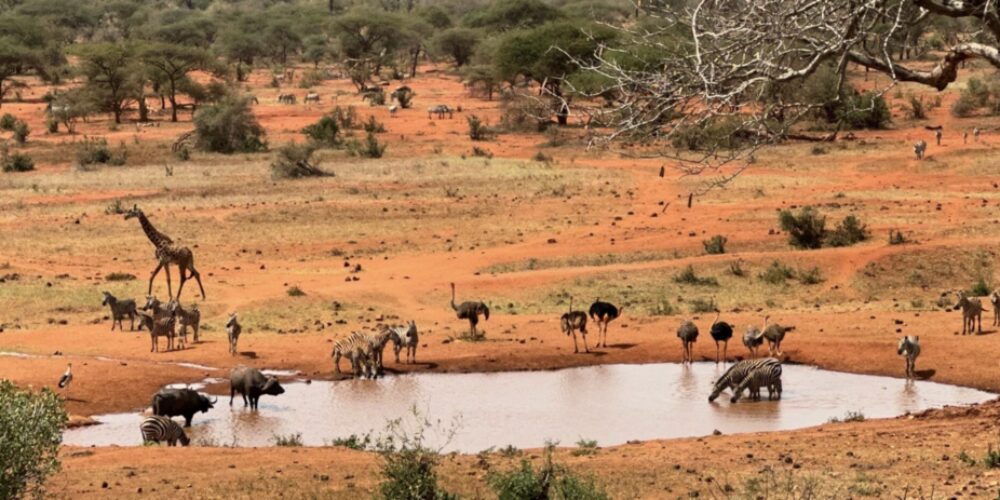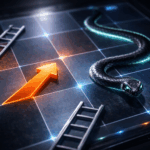To become better citizens of this planet we must overcome the delusion that we are special

I often have the privilege of being in Kenya’s many wildernesses—my work takes me there, as does my love of the natural world. Recently, in the Tsavo National Park, I came upon a fascinating scene.
It was at a watering-hole, where animals of all sizes, shapes, and colours arrive throughout the day and night, after long treks, to quench their thirst. Many different species can be found there, lapping up the water or frolicking in the cooling mud. All at the same time. Without too much trouble.
The animals know how to share the resource with others very different from them. There’s a pecking order, sure, and some minor skirmishes will break out from time to time. But by and large, they coexist, and they let others be. Which leads me to think: what would humans do to a scarce resource they happen to come across, one that they knew other humans have need of?
I think we all know the answer: they would fence it off! If allowed to, they would claim it for themselves and themselves alone; they would partake of it to gluttony; they would charge others to share in it. We really are the most selfish of species. We cannot look upon anything in the divinity around us without wanting to corral it, tame it, exploit it, abuse it. All for our very narrow, selfish ends.
It is not that the rest of existence does not contain species that threaten others. Nature is as brutal as it is beautiful. But there is an orderly food chain at work, which balances itself out and maintains a steady equilibrium—until humans arrive. Earlier humans, though having the same tendencies as their more modern incarnations, were unable to inflict themselves at scale upon the planet. But in the Anthropocene era, we have learned the technologies and practices that allow us to run riot.
We look at trees, and see only the skyscraper we might build in their place. We gaze upon animals, and see only meat or skins or circus acts. We stare out at oceans and rivers, and see pathways for our goods or dumping grounds for our rubbish. We contemplate the air above us, and calculate only how much more of our pollution it can absorb.
Why on earth—why in hell, in matter of fact—are we like this? Albert Einstein had an answer for us. In a letter he wrote in 1950, he pointed out: “A human being is a part of the whole, called by us “Universe,” a part limited in time and space. He experiences himself, his thoughts and feelings as something separate from the rest—a kind of optical delusion of his consciousness. This delusion is a kind of prison for us, restricting us to our personal desires and to affection for a few persons nearest to us. Our task must be to free ourselves from this prison by widening our circle of compassion to embrace all living creatures and the whole of nature in its beauty.”
A timeless insight. We are narrow and selfish because we are deluded, not because it is our natural state. We have even built an entire economic doctrine based on this delusion, that maximising our own untrammelled private gains is best for everyone.
I watched The Elephant Whisperers, the Oscar-winning short documentary on Netflix recently. In it, an elderly couple—Bomman and Bellie—raise orphaned elephants. They do this with full commitment, compassion, and love—as though the elephants were their own kith and kin. In one devastating scene, Bomman is told that one of the elephants in the couple’s care, Raghu, has outgrown them and must move on to a different handler to be prepared to return to the wild. The intensity of pain on the man’s face at the prospect of losing his elephant is simply heartrending.
Where others see an elephant and see tusks and hides and tourist attractions and dollar signs, Bomman saw a living creature just like himself, one that became his son. His life is part of a bigger life; his consciousness is connected to the consciousness of the entire planet. Most of us default to an exploitative life, led by our role models. The only antidote to this sickness is to break through the delusion that we are special and unique and must have it all our own way.
The poet Walt Whitman wrote these words, and they have stayed with me for decades:
“I think I could turn and live with animals, they are so placid and self-contain’d,
I stand and look at them long and long.
They do not sweat and whine about their condition,
They do not lie awake in the dark and weep for their sins,
They do not make me sick discussing their duty to God,
Not one is dissatisfied, not one is demented with the mania of owning things,
Not one kneels to another, nor to his kind that lived thousands of years ago,
Not one is respectable or unhappy over the whole earth.”

Buy Sunny Bindra's new book
The X in CX
here »
Popular Posts
- Make this your year of being boringJanuary 4, 2026
- Can we please stop with the corporate jargon?January 11, 2026
- Snakes and Ladders, AKA your lifeJanuary 25, 2026
- The man who passed by one markJanuary 18, 2026
- My books of the yearDecember 14, 2025















